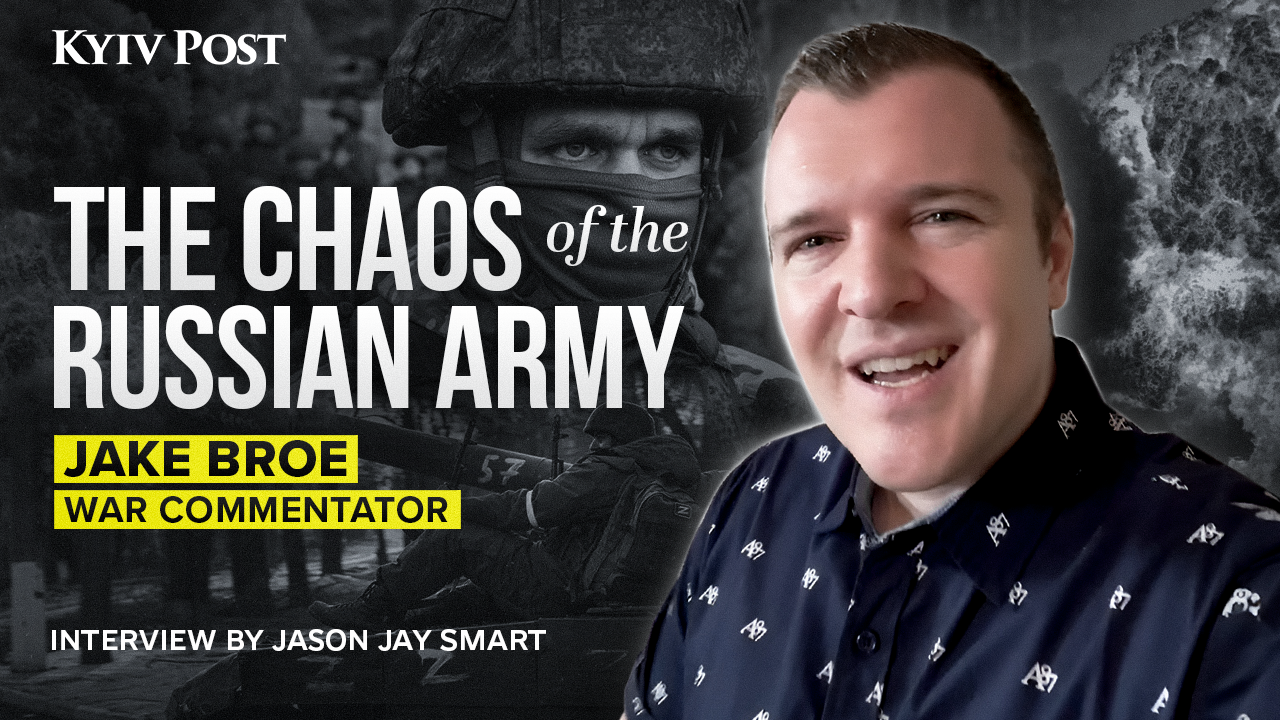On Wednesday, the Armed Forces of Ukraine (AFU) announced they had destroyed Russian pontoon bridges with American weapons as part of their counteroffensive in the Kursk region, as Kyiv and Moscow traded territorial gains this week in each other’s countries.
In a video released by Ukraine’s Special Operations Forces (SOF) on Wednesday, AFU units are seen firing US-made HIMARS systems on bridges and pontoon crossings. The SOF offices additionally claimed to have hit and destroyed other equipment, an ammunition depot, storage for fuel and lubricants, an electronic warfare system, and a 152-mm D-20 artillery piece, all in the Kursk region.
JOIN US ON TELEGRAM
Follow our coverage of the war on the @Kyivpost_official.
AFU units already have destroyed three critical permanent supply bridges over the Seym River during their 15-day incursion into Russia’s southwestern region that borders Ukraine. President Volodymyr Zelensky has described the aim of the operation as creating a buffer zone along his country’s northeastern frontier as a way to prevent further Russian attacks on the areas around Ukraine’s Sumy and Kharkiv regions.
Zelensky said in his nightly address on Wednesday that Kyiv’s allies should honor their commitments to send more weapons for Ukraine’s defense.
“This is fundamental for defense,” he said.
Meanwhile, the Russian Ministry of Defense has claimed more gains along Ukraine’s eastern front, especially in the battles around Pokrovsk. Moscow says it has overtaken the settlement of Zhelanne, which lies less than 12 miles to the east of that transport hub.

Russia Planned Genocide Long Before Invasion: Kill Lists, Crematoriums, Mass Graves – HUR
According to the Institute for the Study of War (ISW), military bloggers along the Pokrovsk front reported that Russian forces also recently advanced within southeastern Hrodivka (east of the city).
The think-tank writes: “Russian advances through Hrodivka will likely slow as Russian forces begin to fight through the settlement’s more urban areas, and Russian forces may struggle to maintain their current tempo of advance as they attempt to advance further west to Myrnohrad (just northeast of Pokrovsk) and Pokrovsk, as these towns are larger and more densely urbanized in comparison to the small and mainly rural settlements that Russian forces have seized east of Pokrovsk and west of Avdiivka thus far.
“The tempo of Russian advances in the area will also depend on how well-manned and equipped the Ukrainian forces defending these towns will be.”
At the Kremlin, Russia and China flaunt their growing economic relationship
As Russian President Vladimir Putin welcomed Chinese Premier Li Qiang to Moscow on Tuesday, the two countries highlighted their “large-scale joint plans” and applauded the emerging “results” of their recently scaled-up economic partnership.
“Our trade relations are developing successfully... The attention that the two governments on both sides are paying to trade and economic ties is yielding results,” Putin said in a meeting with Li. “Our states have worked out large-scale joint plans, projects in economic and humanitarian spheres, we expect for many years ahead,” he added.
For his part (as quoted by AFP via the Kremlin’s translators) Li said that “Chinese-Russian relations are at an unprecedentedly high level,” and had created a “strong impulse for further deepening of bilateral relations.”
Russian Prime Minister Mikhail Mishustin also met with the Chinese premier and underlined the role that Beijing has played in supporting the Russian economy as the West has attempted to derail it via sanctions.
“Our partnership and strategic cooperation is especially important in a situation where new contours of the global order are being formed,” Mishustin said. “And in these conditions, the Russia-China link is a powerful stabilizing factor, promoting economic growth in both countries and increasing quality of life for our citizens.”
While Beijing has benefited from cheap Russian energy imports and enjoys its status as one of Russia’s only big customers in the face of Western sanctions, it continues to present itself as “neither party nor participant” in the war in Ukraine, despite Kyiv’s allegations that certain Chinese-parts have been found in weapons used in Putin’s invasion. Beijing denies that any of its goods have been used as such components.
NATO members have called China a “decisive enabler” of the war, AFP noted.
Shortage of Western parts has Moscow’s power distributor worried about energy deficits in a few years
For the first time in recent history, Russia’s central electricity distributor has expressed concerns that, in the long term, the country could face power shortages as foreign companies are not repairing critical equipment or supplying spare parts.
The Moscow Times reported this week that the draft “General Scheme for the Development of Russian Energy until 2042,” assembled by the country’s central power dispatcher, estimates Russia may face a deficit of 1.6 GW by 2030 and 4.2 GW by 2042.
The report specified that turbines for thermal power plants were left without spare parts and personnel who could repair them following the strengthening of Western sanctions in June 2023, and that, specifically, General Electric (an American company) and Siemens (German) refused to maintain the foreign-made turbines, which make up about 10 percent of the nation’s total.
Rostov fuel tanks are still burning
On a separate note, the energy supply for Russia’s military continues to shrink, if on a much smaller scale, with the diesel tanks in the Rostov region hit by Ukrainian attack drones over the weekend continuing to burn four days later.
An analysis by Radio Liberty and open-source intelligence analysts estimated that, as of Wednesday, the ensuing fire from the drone strikes had taken a large percentage of the massive facility’s storage off-line: the inferno destroyed 14 fuel tanks, while four others were partially destroyed. Official sources had said that 22 tanks were engulfed in flames.
The complete extent of the damage was impossible to calculate from satellite images, the independent analysts said, because huge clouds of thick black smoke remained over the facility.
It’s been three days since Ukrainian drones hit the diesel storage tanks of the Russian State Reserve in Proletarsk, Rostov region, and the fire is still spreading. pic.twitter.com/AKgRJks1EB
— Yaroslav Trofimov (@yarotrof) August 19, 2024
You can also highlight the text and press Ctrl + Enter









